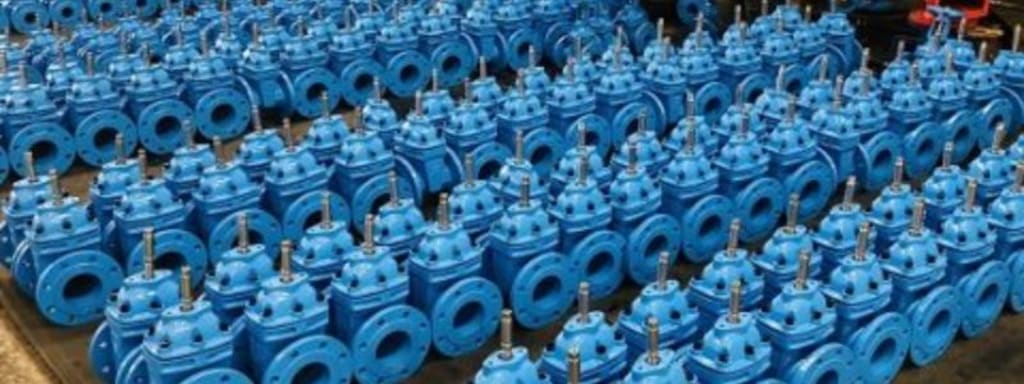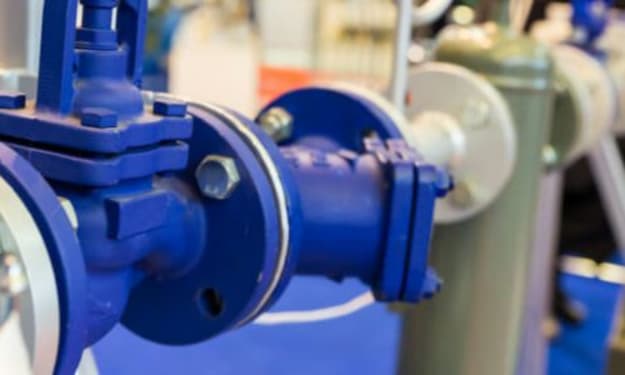How Our Valves are Made: A Look Inside Kuwait's Valve Manufacturing Process
Get A Closer Look As How Our Valves are Made: A Look Inside Kuwait's Valve Manufacturing Process

Valves are an essential component of any industrial system. They regulate the flow of fluids and gases, and ensure the safety and efficiency of the entire system. In Kuwait, valve manufacturing is a thriving industry, with companies producing valves for a wide range of industrial applications. In this blog, we'll take a closer look at how valves are made in Kuwait, and the manufacturing process that goes into producing high-quality valves.
The manufacturing process for valves begins with the selection of materials. Valves Manufacturer in Kuwait typically use a variety of materials, including metals such as steel, brass, and aluminium, as well as non-metallic materials like plastic and ceramic. The choice of material depends on the specific application of the valve, as well as the operating conditions it will be subjected to.
Once the materials have been selected, they are processed into the required shapes and sizes. This process can involve cutting, bending, and shaping the materials using specialised equipment such as lathes, drills, and saws. The Valves manufacturers in Saudi Arabia ensure that each component is made to exact specifications, as even small deviations can result in a valve that fails to function properly.
The next step in the valve manufacturing process is assembly. The individual components of the valve, such as the body, stem, and disc, are assembled together using various techniques such as welding, brazing, or screwing. This process requires a high level of precision and accuracy, as each component must be aligned perfectly to ensure smooth operation of the valve.
After assembly, the valves undergo a series of tests to ensure that they meet the required standards for safety and efficiency. These tests can include pressure testing, leak testing, and flow testing, among others. Any valves that fail to pass these tests are discarded, and the manufacturing process starts again from scratch.
Finally, the valves are finished and prepared for shipment. This can involve applying coatings or finishes to protect the valves from corrosion or damage, as well as packaging them for transport to their final destination. The Valves Suppliers in Qatar ensure that the valves are properly labelled and accompanied by all necessary documentation, such as certificates of conformity and test reports.
Another important consideration in valve manufacturing is the use of non-metallic materials. Non-metallic materials such as polymers, ceramics, and composites are increasingly being used in valve manufacturing due to their lightweight, corrosion resistance, and cost-effectiveness. For example, valves used in corrosive environments such as wastewater treatment plants or chemical processing plants can benefit from the use of non-metallic materials that are resistant to corrosion.
However, the use of non-metallic materials also presents unique challenges in valve manufacturing. For example, the processing of non-metallic materials can be more challenging than that of metallic materials, as they may require specialized techniques such as injection molding or extrusion. Additionally, non-metallic materials may require different testing methods than metallic materials to ensure their strength and durability.
Another challenge that valve manufacturers in Kuwait may face is complying with international safety standards. Valves used in industrial applications must meet strict safety standards to ensure that they do not pose a risk to workers or the environment. International standards such as the American Petroleum Institute (API) standard and the International Organization for Standardization (ISO) provide guidelines for the design, manufacture, and testing of valves used in industrial applications.
In conclusion, valve manufacturing in Kuwait is a complex and precise process that requires a high level of expertise and attention to detail. From the selection of materials to the final testing and shipping, each step must be executed flawlessly to ensure that the valves meet the exacting standards of safety and efficiency required in industrial applications. With the right materials, equipment, and expertise, Valves Manufacturers in Kuwait are capable of producing high-quality valves that meet the needs of industries across the region.
In summary, valve manufacturing is an important industry in Kuwait, and the process of making valves involves several steps such as selecting materials, processing them into required shapes, assembly, testing, and finishing. Manufacturers in Kuwait use various materials such as steel, brass, and plastic depending on the application. The process requires high precision and accuracy to produce efficient and safe valves. Testing and packaging are also important aspects of the manufacturing process to ensure that valves meet the required standards. With their expertise and advanced equipment, valve manufacturers in Kuwait are capable of producing high-quality valves that meet the demands of various industries.
Contact us today to learn more about our products and how we can meet your industrial valve needs.
Dalmine Valves is a reputable Gate Valves Manufacturers in India





Comments
There are no comments for this story
Be the first to respond and start the conversation.